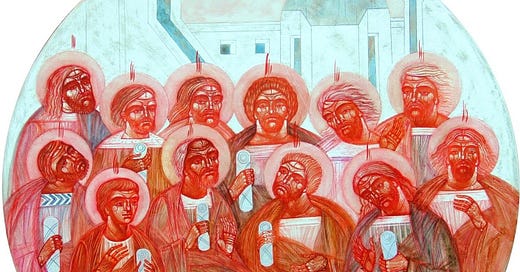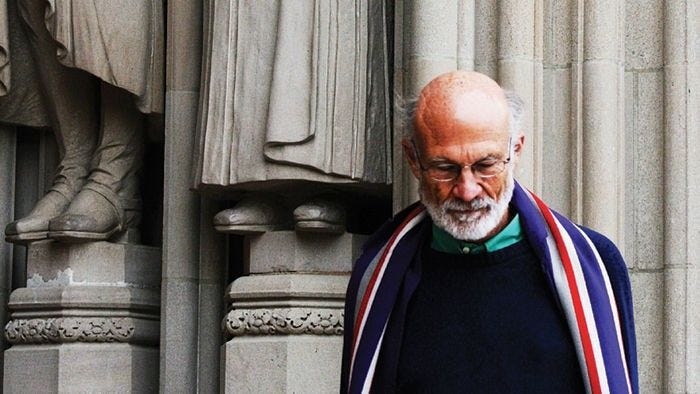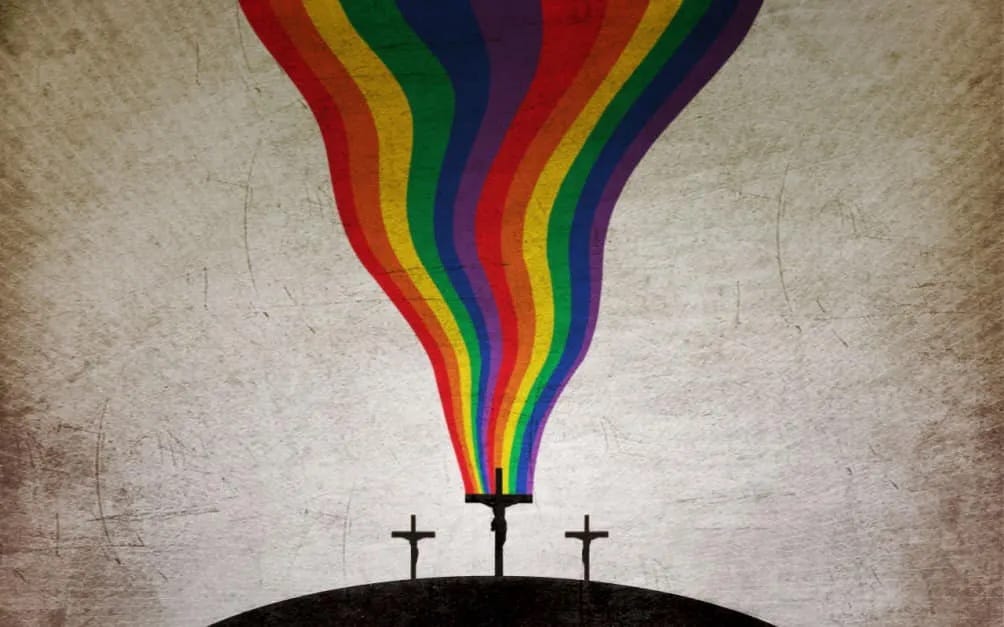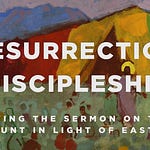Holy Spirit,
wild breath of God,
you do not wait for us to be ready.
You rush in, unexpected and utterly necessary.
You bring holy fire to our comfort and grace to our cluttered lives.
We confess we often serve to be seen,
but you call us to something deeper.
You speak in every language: of grief, joy, and hope.
So come again.
Loosen our grip.
Ignite us with your love.
Not for our glory, but yours.
Amen.
Most of us do not wake up praying for chaos. We prefer our lives to be predictable, our church pews are tidy, and surprises are kept to a minimum. But Pentecost shows up like Cousin Eddie crashing the party without an RSVP and then sets the curtains on fire. Wind, fire, shouting, and confusion. The Holy Spirit does not arrive with a clipboard and a sign-up sheet. She arrives wild and free, with flame on her breath and an invitation that cannot be ignored. And on that day in Jerusalem, everyone heard the Gospel in their own language, not the language of temple priests or the empire. Their own.
It's loud, it's inclusive, and, to be honest, it's unnerving.
And that's the point.
The fire did not just fall on those who signed up for a Bible study or those singing in the choir. Luke tells us. Parthians, Medes, Elamites, Judeans, Cappadocians, Egyptians, and Romans, you name it, were there.
You’ll remember the Tower of Babel story from Genesis, humanity’s big DIY project to reach heaven. They weren’t content to be creatures; they wanted to be in the boardroom with God. So, they stacked brick on brick, trying to build a name for themselves, like some ancient Mesopotamian LinkedIn profile. And God? God sees what they’re up to and doesn’t blast the tower to rubble. God scrambles their speech. Suddenly, no one can understand each other, and the project falls apart. It’s not just a cute explanation for why we speak different languages. It is a story about what happens when we try to build unity without God, when we confuse collaboration with control. Babel isn’t about a God who feels threatened. It’s about a God merciful enough to stop us from building a kingdom in our image. It’s God graciously messing things up before we manage to really ruin everything.
Now, I may struggle to find Cappadocia on a map, but what strikes me is how theologian Stanley Hauerwas describes in the scene: “At Pentecost, God undid what was done at Babel. … The sound that was like the rush of a mighty wind signaled a new creation … a baptism of fire through which we enter a community whose memory of its Savior creates the miracle of being a people whose very differences contribute to their unity and love for one another. We call this new creation church.”[i]
However, notice that Hauerwas does not claim God simply reversed the Babel event. God redeems it. Babel’s shattering was not just punishment. It was a gift. It exposed our limits, humbled our pride, and forced us to confront our need for one another. But left unchecked, our divisions turned to conquest, and our differences turned to fear. Our scattering gave birth to war.
Pentecost doesn't erase these differences. It heals the wounds.
The list of nations was not a who's who of the first century. It is a holy census of the forgotten, the left behind, and the uninvited. This is a divine roll call where everyone gets named, even those believed to be long gone. God's power transcends time. It reaches into the past to reclaim the lost and weaves them into a present moment of grace.
In other words, Pentecost was already inclusive before we got around to recognizing it. God was already including the lost, erased, and invisible. The one's history forgot. The people the Church has too often pushed to the margins, the ones we struggle to understand. God brought all of them into the story.
So yes, we can celebrate Pride Month throughout June. And yes, it matters deeply because the Church (capital C) and The United Methodist Church have done immeasurable harm to the LGBTQ+ community. That harm must be named, confessed, and repented of. But we must also say this plainly: Inclusion is not a seasonal offering. It is God's default setting, and as Christ's body, inclusivity is an inherent part of the church's nature.
We often talk about the church being born at Pentecost, but leave the sentimentality to Hallmark. The church wasn't born like a baby swaddled in blankets. The church was ignited.
What God undid at Babel was our attempt to make everyone the same. What God did at Pentecost was far greater. God did not bring us back to one language. No, God revealed that the Holy Spirit speaks all of them.
God redeemed Babel not by flattening. But by sending a Church that sings the same grace in every key.
It wasn't conformity that brought the Church together; it was communion, and that communion wasn't possible because everyone spoke the same language, but because the Holy Spirit translated grace. The miracle wasn't just in the speaking. It was in the hearing. Each of us hears in our own language the mighty acts of God. This is not efficiency. It is holy intimacy. God chooses to speak grace in the dialects of our daily lives. In the cadences of home and memory. The Holy Spirit comes not to erase identity but to dwell in it, through it, and beyond it. At Pentecost, the Holy Spirit did not erase the difference; she magnified it and made it beautiful.
That's the Church. Christ's body: Gay and straight, rich and poor, old and young, neurodivergent and neurotypical, Cradle Methodists and skeptics stumbling in on a dare or last-ditch hope. All of us re-membered into something new.
A people bound not by shared preferences but by a shared purpose.
People who don't have to agree on everything to belong to something holy.
Stanley Hauerwas reminds us, “To be faithful to God’s gift at Pentecost, therefore, the church cannot avoid calling attention to itself. Christ’s disciples have a story to tell in which God in Christ is the main character.” [ii] This is not a story where we make ourselves the heroes. Even in our giving, acts of justice, and worship, we do not point to ourselves but to the One who first loved us. Our quiet acts of inclusion and compassion do not shine a spotlight on our virtue but instead point to God's grace breaking into the world.
Jesus warns us about generosity that performs instead of transforms. When we give, love, or welcome just to be seen, we have already received our reward, and it is fleeting.
Jesus calls us to a kind of inclusion and generosity that does not need applause.
Resurrection reorders our priorities and affections in Christ. We give not to be seen by others but out of a heart transformed by grace. Resurrection people live not for recognition but to reflect the generous love of our risen Lord.
So yes, fly the rainbow flag, but also sit in silence with someone who is grieving. Make room on your pew for the kid who makes noise. Show up to the protest after the cameras are gone. Invite someone to your table who cannot return the favor.
Give not to be seen, but because the Holy Spirit has opened your clenched fists. Because God has turned inward grace outward.
Friends, the Holy Spirit is still moving, still showing up as she did at the first Pentecost. Not quietly, not politely. Not when it's convenient.
She is still pouring herself on all flesh, not just the ones we agree with. Not just the ones who tithe. Not just the ones who know the hymns by heart. All.
Pentecost is a reminder that God is not distant and has come to us, filled us, and sent us. Not as individuals trying to perform piety but as peculiar people fluent in love and grace.
As Rev. Pamela Lightsey reminds us, “The Holy Spirit calls us not to comfort but to courage.”[iii]
Amen.
[i] Hauerwas, Stanley. Jesus Changes Everything: A New World Made Possible. Plough. 2025.
[ii] Hauerwas, p. 50.
[iii] Pamela R. Lightsey, Our Lives Matter: A Womanist Queer Theology Wipf and Stock. 2015, p. 95.
















Share this post